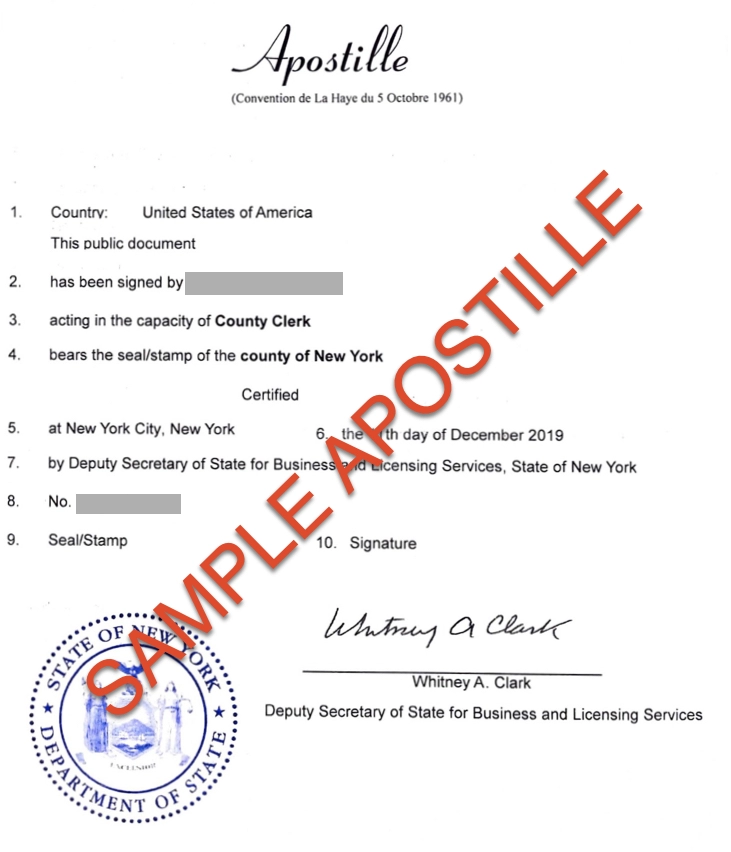Digging Into the Reasons Behind the Compulsory Demand of Apostille Accreditation for Legal Papers
In the realm of legal documentation, the mandatory requirement of apostille qualification has actually come to be a crucial facet that dramatically influences the credibility and recognition of legal documents on a global scale. Understanding the rationale behind this need includes delving right into the detailed web of legal intricacies, historic precedents, and global arrangements that highlight the significance of apostille certification in today's interconnected globe. By checking out the underlying reasons behind this prevalent demand, a more clear photo emerges of why this apparently administrative process holds such tremendous importance for companies, individuals, and federal governments alike.
Historical Advancement of Apostille Accreditation
Exactly how did the concept of apostille accreditation advance over time to become a necessary component of international file validation? The requirement for a streamlined approach of validating files for use across boundaries ended up being noticeable as international trade and travel enhanced.
At first embraced by a couple of European countries, the Apostille Convention progressively gained global acceptance due to its efficiency and efficiency in confirming the legitimacy of official papers. Throughout the years, the convention's reach broadened as more countries joined, recognizing the apostille as a generally accepted type of file authentication. Today, apostille certification has become a basic demand for verifying legal documents in global purchases, ensuring smooth interaction and lawful process in between countries.
Simplifying International Document Legalisation
The streamlining of global paper legalization procedures has actually significantly improved performance in cross-border transactions. Simplifying the procedure of legislating documents for international use has actually come to be important in promoting swift and seamless transactions between nations. Among the vital mechanisms that have contributed to this simplification is the adoption of the Apostille Convention, which supplies a standard approach for verifying the authenticity of files across taking part nations.
By sticking to the Apostille demands, nations accept identify each various other's public records as legitimate without the demand for further legalization. This eliminates the lengthy and typically troublesome procedure of several authentications by different authorities, saving time and resources for businesses and individuals participated in worldwide activities.

Making Certain Paper Authenticity and Legitimacy
To make sure the authenticity and legitimacy of lawful files in global deals, stringent confirmation processes are essential - Houston Apostille. Lawful papers play a crucial duty in cross-border transactions, and guaranteeing their legitimacy is paramount to maintain the integrity of such purchases. By requiring apostille qualification for legal documents, authorities aim to confirm the origin of records and confirm the trademarks of individuals entailed. This process assists prevent scams, misstatement, and other negligences that could threaten lawful process or worldwide arrangements.
Moreover, confirming the credibility of lawful documents through apostille accreditation improves trust fund and confidence among celebrations involving in global purchases. It provides assurance that the files provided are authentic and legitimately binding, therefore reducing the threats connected with deceptive activities. Furthermore, guaranteeing paper validity via apostille qualification streamlines the legalization procedure, making it extra trustworthy and reliable for people and companies carrying out company across borders. Ultimately, by upholding strict confirmation criteria, apostille qualification adds to a much more secure and clear global lawful framework.

Facilitating Cross-Border Legal Acknowledgment
In the world of worldwide transactions, the apostille qualification not just guarantees the authenticity and try this site legitimacy of legal documents yet additionally plays a critical role in facilitating cross-border lawful recognition (Houston Apostille). When legal documents bear an apostille certification, they are easily accepted by international authorities without the requirement for further confirmation. This streamlined procedure quickens the acknowledgment of documents in various countries, advertising effectiveness and reducing administrative hurdles in lawful matters that transcend nationwide limits
Facilitating cross-border legal acknowledgment with apostille qualification promotes trust fund and confidence in the credibility of documents traded in between countries. This acknowledgment is particularly vital in scenarios such as worldwide business deals, fostering processes, or legal process involving celebrations from various jurisdictions. By adhering to the criteria set forth by the Apostille Convention, nations accept recognize the apostille seals affixed to papers from various other member countries, therefore streamlining the procedure of legal recognition throughout boundaries. Ultimately, the apostille accreditation offers as a basic tool in promoting seamless worldwide lawful cooperation and guaranteeing the smooth operation of cross-border deals.
Compliance With International Treaty Specifications
Conformity with worldwide treaty requirements is essential for ensuring the consistent application of lawful laws throughout getting involved countries. The Apostille Convention, developed in 1961, details the demands for the acceptance of public files among participant nations. By sticking to the requirements stated in this treaty, nations devote to identifying the legitimacy of each various other's certification without the need original site for more verification - Houston Apostille. This shared acceptance streamlines the procedure of cross-border paper recognition, promoting performance and minimizing administrative hurdles.
The Apostille qualification, as mandated by the treaty, serves as a warranty of authenticity for documents such as birth certifications, marriage licenses, court judgments, and notarized acts. This standardized approach assists prevent fraudulence and guarantees that lawful papers stemming from one member nation are readily approved in another. By conforming with global treaty standards, countries show their commitment to maintaining the concepts of transparency, depend on, and participation in legal issues on an international scale.
Final Thought

In the world of lawful documents, the mandatory demand of apostille certification has actually come to be a vital element special info that dramatically influences the validity and recognition of legal papers on an international scale. Today, apostille accreditation has ended up being a common need for confirming lawful documents in worldwide deals, making sure smooth interaction and lawful procedures between nations.
Furthermore, verifying the authenticity of legal documents via apostille qualification boosts trust fund and self-confidence among parties engaging in global purchases.In the world of worldwide transactions, the apostille certification not just makes certain the credibility and credibility of legal records yet likewise plays a critical role in facilitating cross-border lawful recognition. By adhering to the criteria established forth by the Apostille Convention, nations concur to recognize the apostille seals affixed to documents from various other member countries, hence simplifying the procedure of lawful recognition throughout borders.